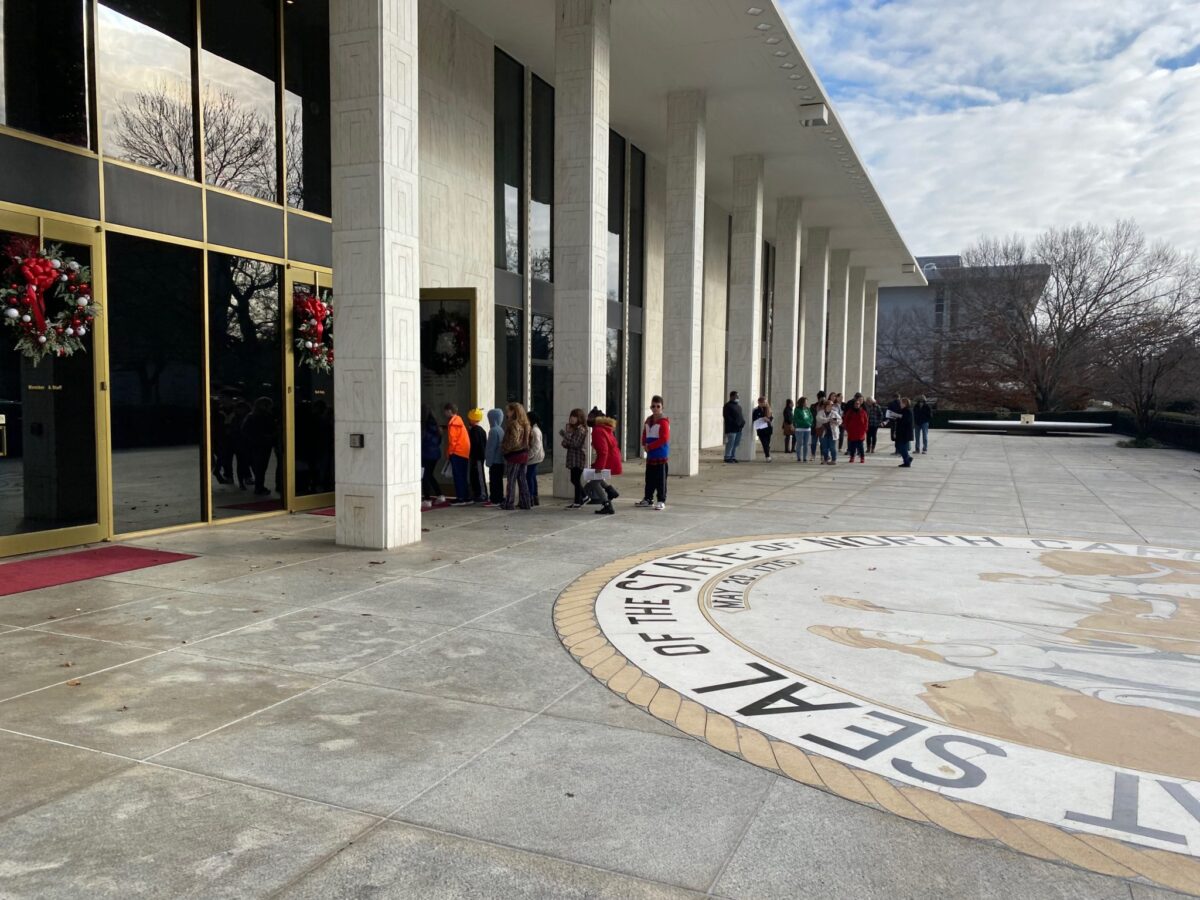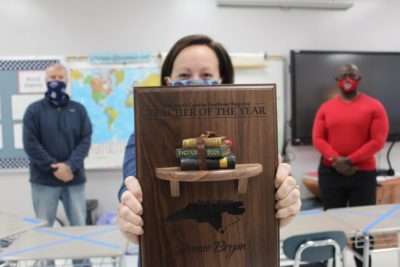
Students in my classroom regularly practice the skill of historical document analysis. My students learn that to fully understand a document, whether it be a personal letter or piece of legislation, they first have to place it in the context in which it was written. In other words, they must ask, “What else is going on in that time and place in which the document was written that may have shaped or informed it?”
Over time, students learn that if they just read a document out of context, they miss out on its full meaning, intent, or ramifications. This is a lesson that I believe will serve them well, long after they leave my classroom.
What do we know about the current times in which education legislation is being written in North Carolina?
First and foremost, we know that 1.5 million bright, talented, and diverse North Carolina public school students are being invested in by passionate, professional, and hard-working educators in every corner of this state. There are great things happening across North Carolina classrooms to be celebrated. And yet, we face significant challenges.
We know that North Carolina ranks 48th in per-pupil spending and 50th in the nation for the amount of funding per student in comparison to our state’s wealth. What does that mean for students? It means, among many things, that schools are under-resourced and that many students are underserved by student support personnel like school nurses, guidance counselors, psychologists, and social workers. The recommended ratio for social workers to students is 1 to 250. Often times, social workers are assigned three to four schools, some serving upwards of 1500 students. How can a social worker be expected to do the meaningful clinical work he or she is trained for with a caseload six times the recommended ratio?
We know that students and families need the mental health resources that student support personnel are uniquely able to provide. Since the pandemic began, there has been a 46% increase in North Carolina youth reporting a depressive episode. We know that a growing number of North Carolina families, students, and teachers are mourning the lives of youth who have died by suicide. And we know that LGBTQIA youth are disproportionately represented in these numbers. We say that our students are resilient … but at what cost?
We know our schools are no longer guaranteed to be safe spaces for our students and staff. During the 2021-22 school year alone, shootings occurred or loaded weapons were found at three campuses of friends and colleagues of mine. If I’m being honest, after 12 years of practicing lockdown drills, I had become desensitized to them, but when my oldest daughter had her first one in kindergarten this past fall, I was snapped back into our reality. A reality where just last week, hundreds of Wake County students and teachers lost valuable learning time and were traumatized by “code red” lockdowns.
Finally, we know that North Carolina educators are bound by a code of ethics. According to the preamble of that document, “the professional educator acknowledges the worth and dignity of every person and demonstrates the pursuit of truth and devotion to excellence, acquires knowledge, and nurtures democratic citizenship.” It continues with enumerated commitments and responsibilities of educators.
The very first commitment is a commitment to students. The educator, “protects students from conditions within the educator’s control that circumvent learning or are detrimental to the health and safety of students.” This is the standard of professionalism and care to which my colleagues and I serve our students — and yet we find our professional and academic integrity increasingly targeted with the creation of controversies out of curriculum and with a bill that would place an undue burden on us. A bill with language that would potentially foster an adversarial relationship with parents instead of a collaborative relationship built on mutual trust and respect.
There are certainly urgent matters to address during this legislative session — with the mental health and safety of our students being paramount. Given the context of these times, I hope lawmakers this session will carefully consider the legislation before them. If you just read a bill, without considering the wider context in which it was created, you may get it wrong. Instead, use what we know to be true about our students and schools’ needs to prioritize your efforts and get it right for the health, safety, and success of our students and schools of North Carolina.


